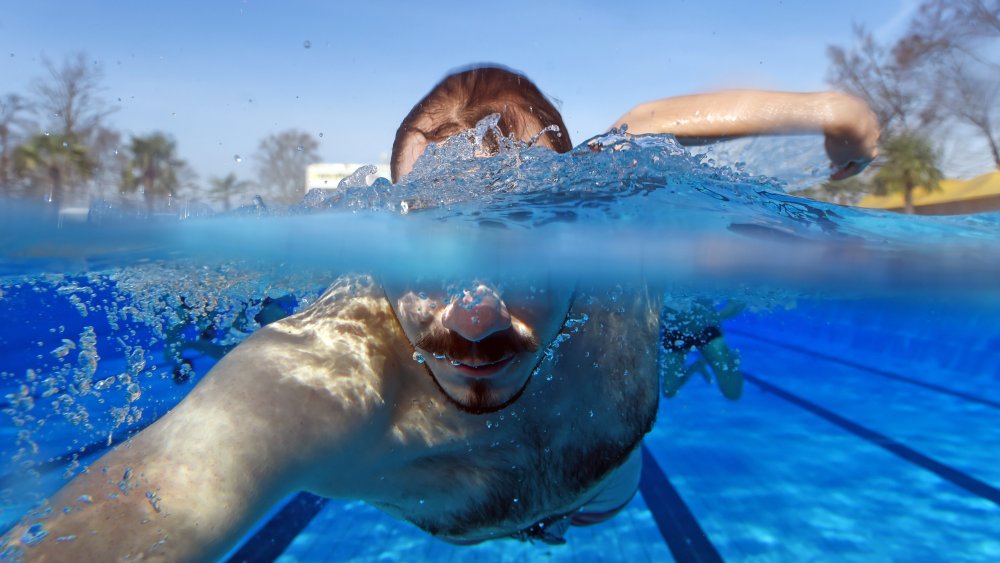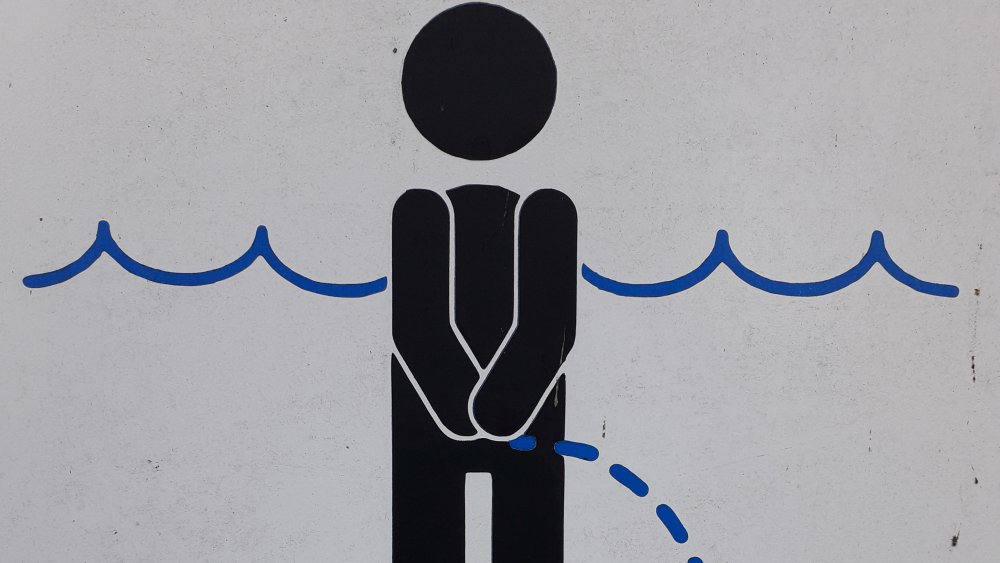How Dirty Are Public Pools?
If life were fair, the worst thing you'd ever find in a public pool is the unwrapped Baby Ruth from Caddyshack or a shaved gopher wearing a bikini. But life is fairly terrible, and in real life, public swimming pools aren't scenes of chocolatey comedy but rather commode-themed tragedy. So you might only find a candy bar floating about after Bill Murray is done eating and excreting it. After all, what is a pool if not a makeshift toilet masquerading as fun?
Easy pee sea
Per the journal Environmental Science and Technology Letters, roughly 1 in 5 adults has confessed to relieving their bladder in a pool, and the typical swimmer releases 70 milliliters of pee. A team of researchers from the University of Alberta took more than 250 samples from 31 pools and hot tubs in two Canadian cities and discovered evidence of urine in all of them. On average, 110,000 gallon-pools had about 8 gallons of pee while 220,000-gallon pools had about 18.5 gallons of pee. If the citizens in one of the friendliest nations on Earth are willing to drain their pool noodles in a vat of water you stick your face in, what hope is there for the rest of the world?
Granted, a mouthful of bladder lemonade might not piss you off if you assume that as long adding chlorine to the mix makes it safe to swim in a sea of pea. You might even take comfort in the nose-stinging aroma of bleach-scented disinfectant. But chlorine won't ease your troubles as easily as you think.
You can't spell 'pool' without 'loo'
The pungent pool smell that so many people associate with cleanliness is closer to god-awfulness. Mary Ostrowski, Director of Chlorine Issues at a trade organization called the American Chemistry Council, told Live Science that the "smell is actually chloramines, a substance that results from a mix of chlorine and bacteria, urine and sweat." When that aroma hits your nose, it means your local pool is filthy. A clean one would be odorless. The consequences of swimming in that filth can be dire or diarrhea. E. coli and so-called crypto parasites can reside in an unclean pool, and once they reside in you, vomiting, abdominal pain, and liquid stinkies may follow.
According to PBS, between 2000 and 2014 there were 493 documented cases of disease tied to public swimming pools. Crypto parasites were behind 60 percent of pool-related illnesses in the U.S. What's even more sickening is that they're often transmitted through tainted poop. With so many people possibly swallowing this stuff, one can only hope that a crappy crypto parasite tastes like a Baby Ruth.


